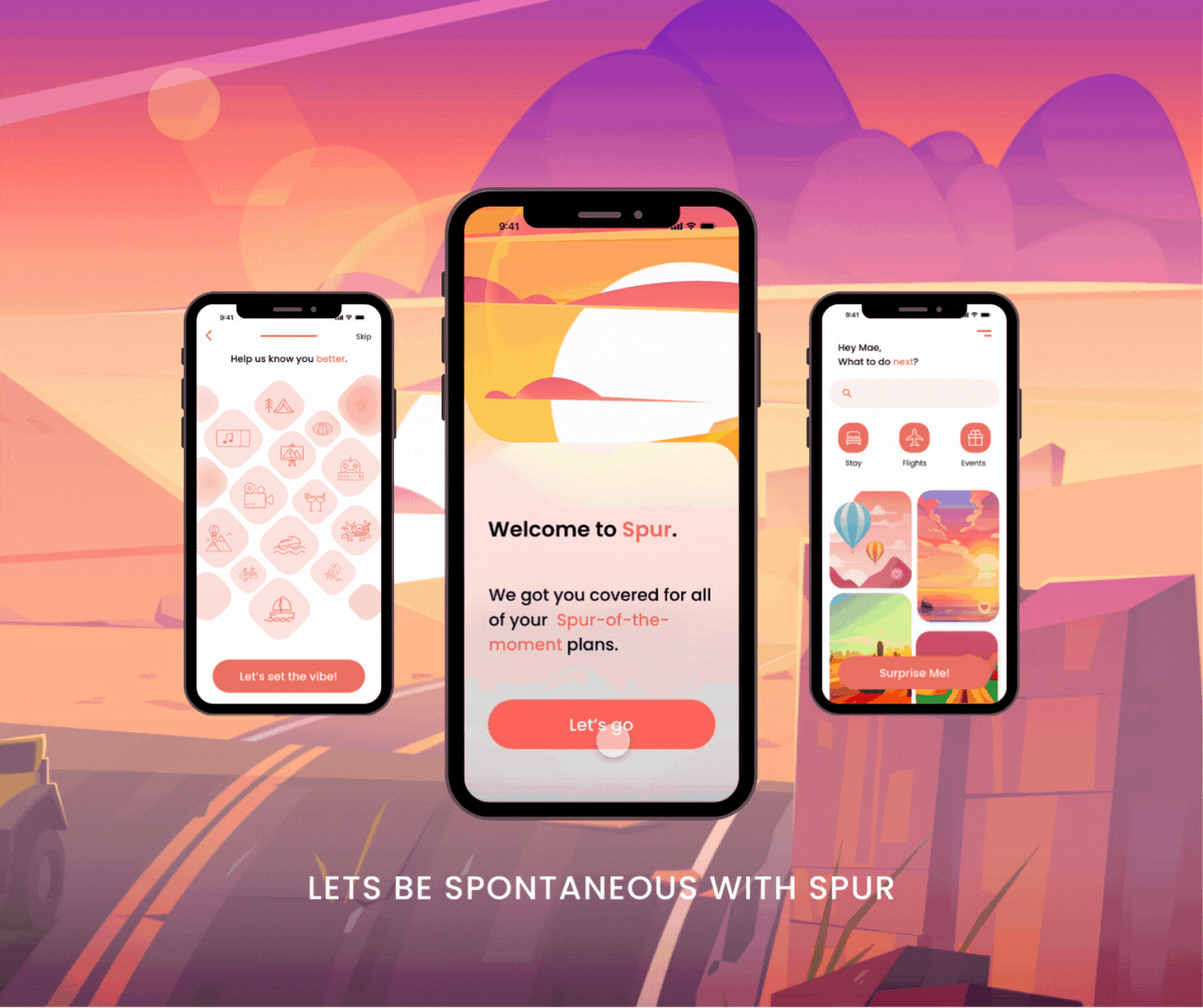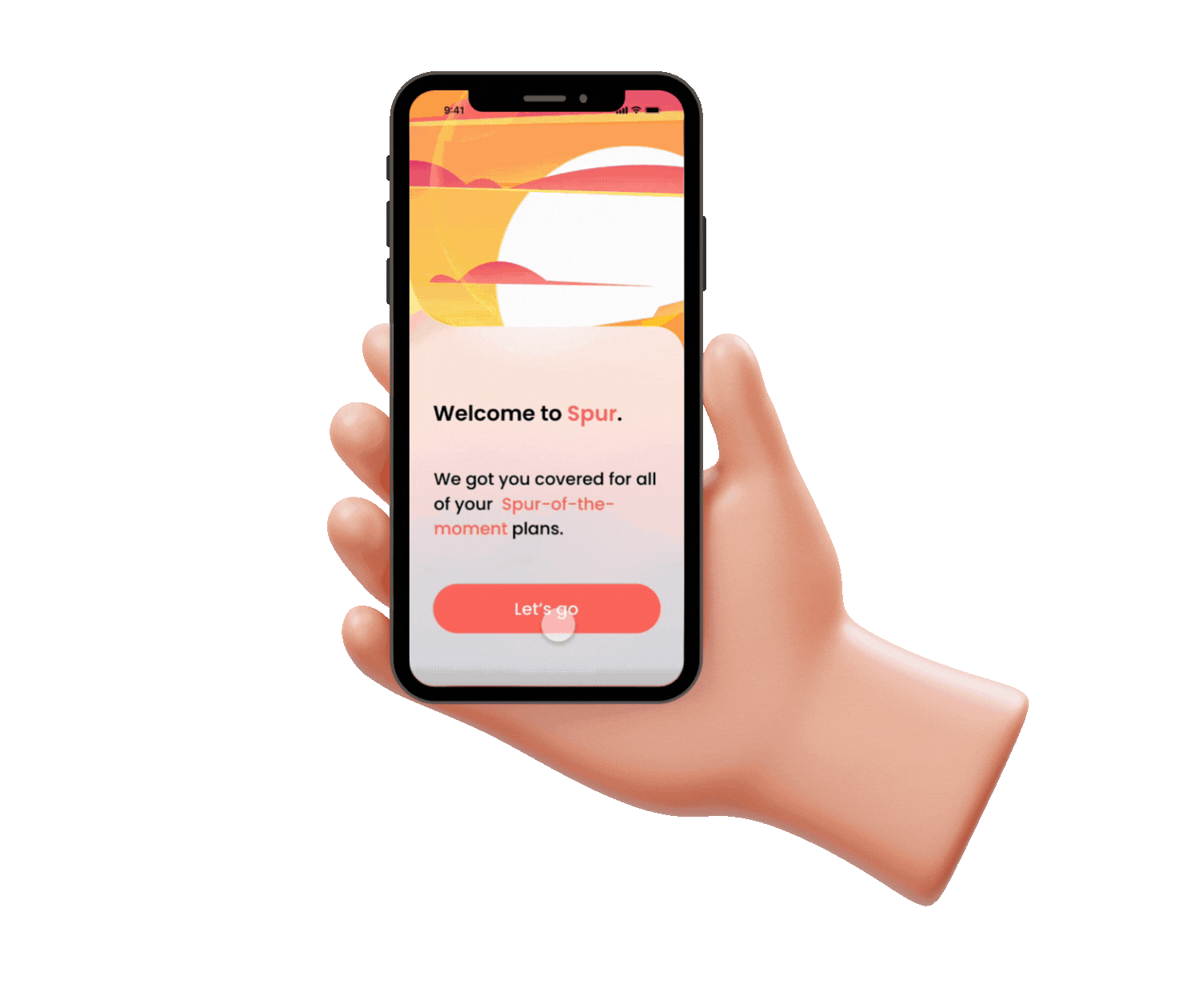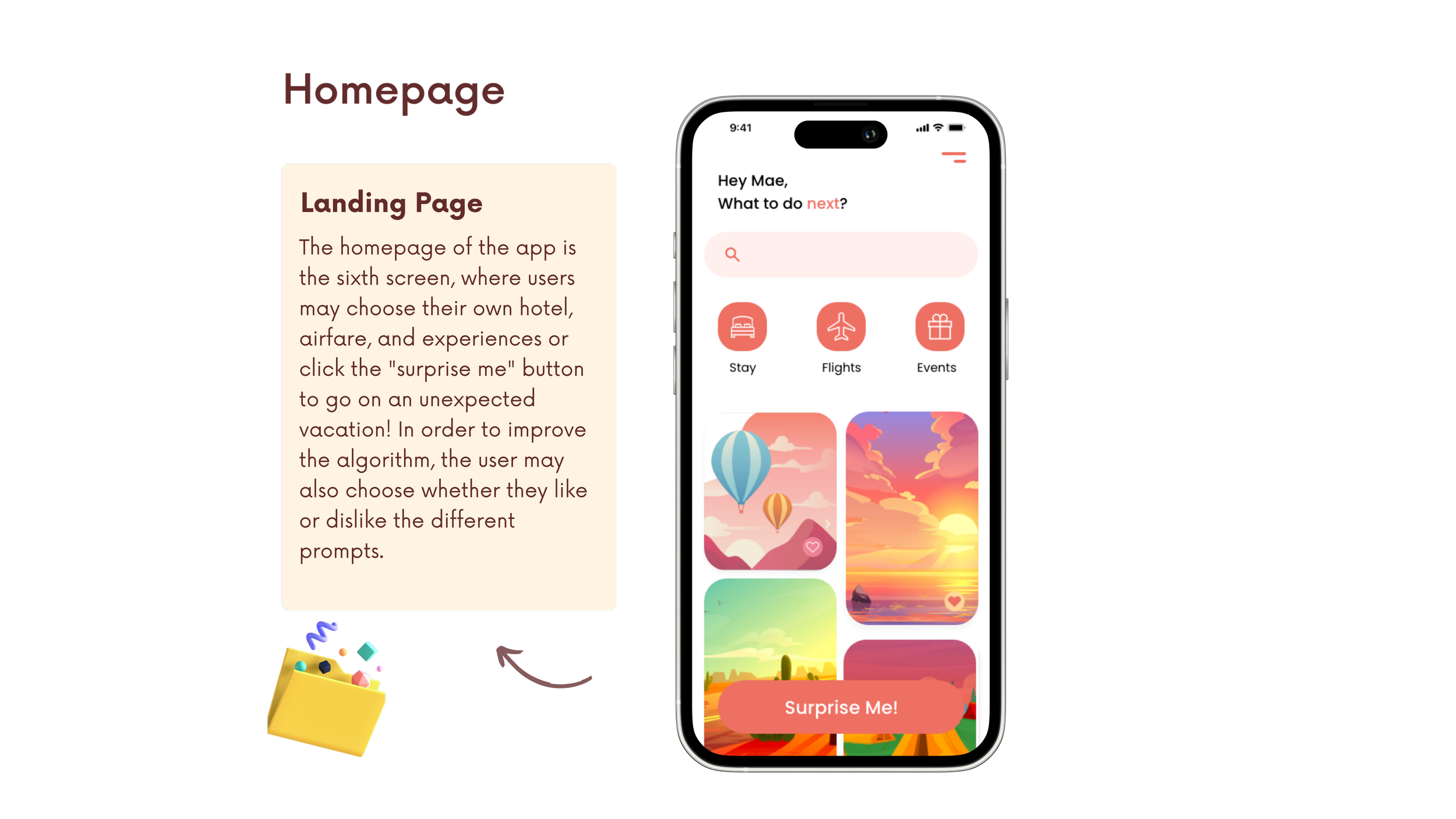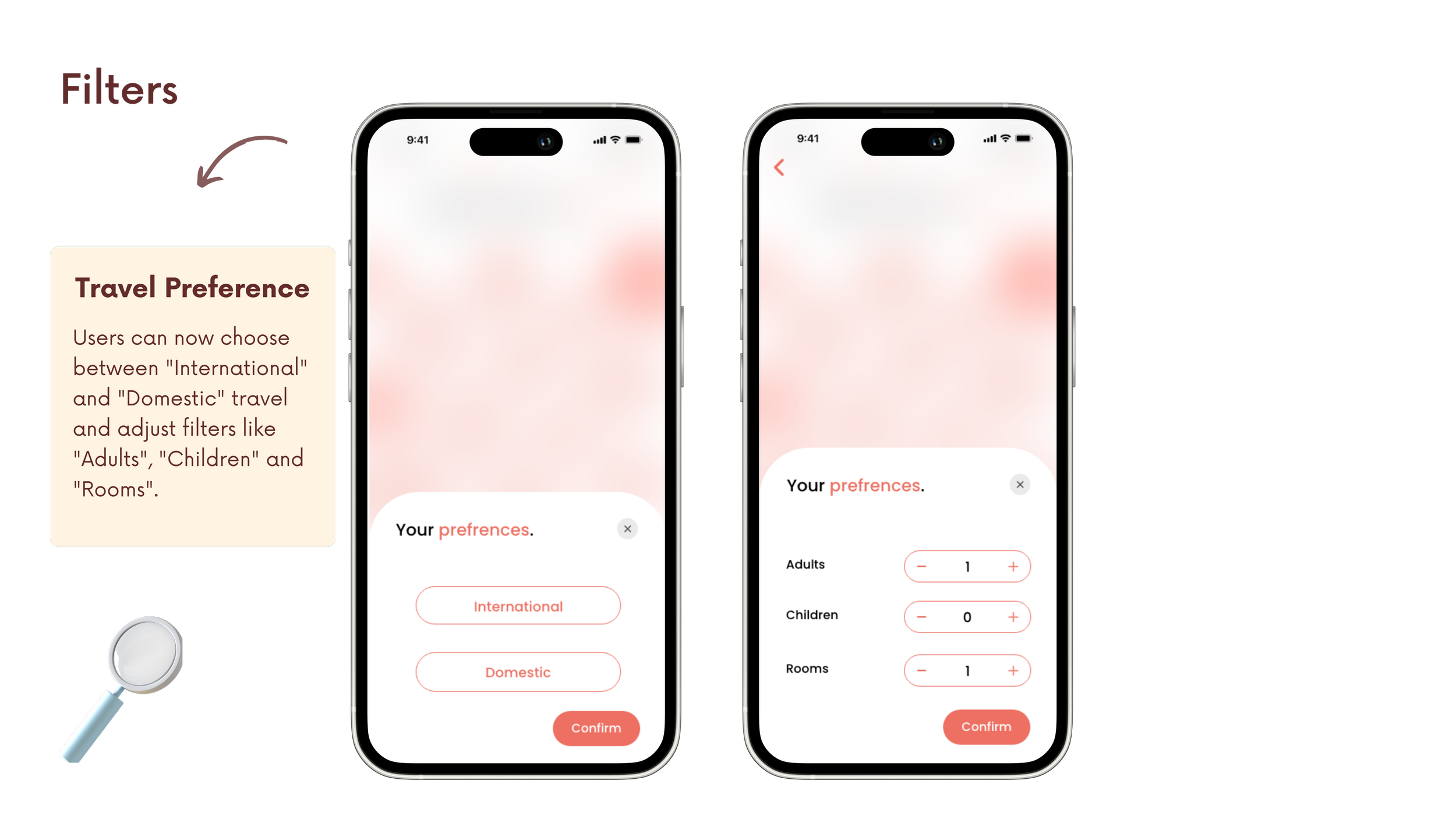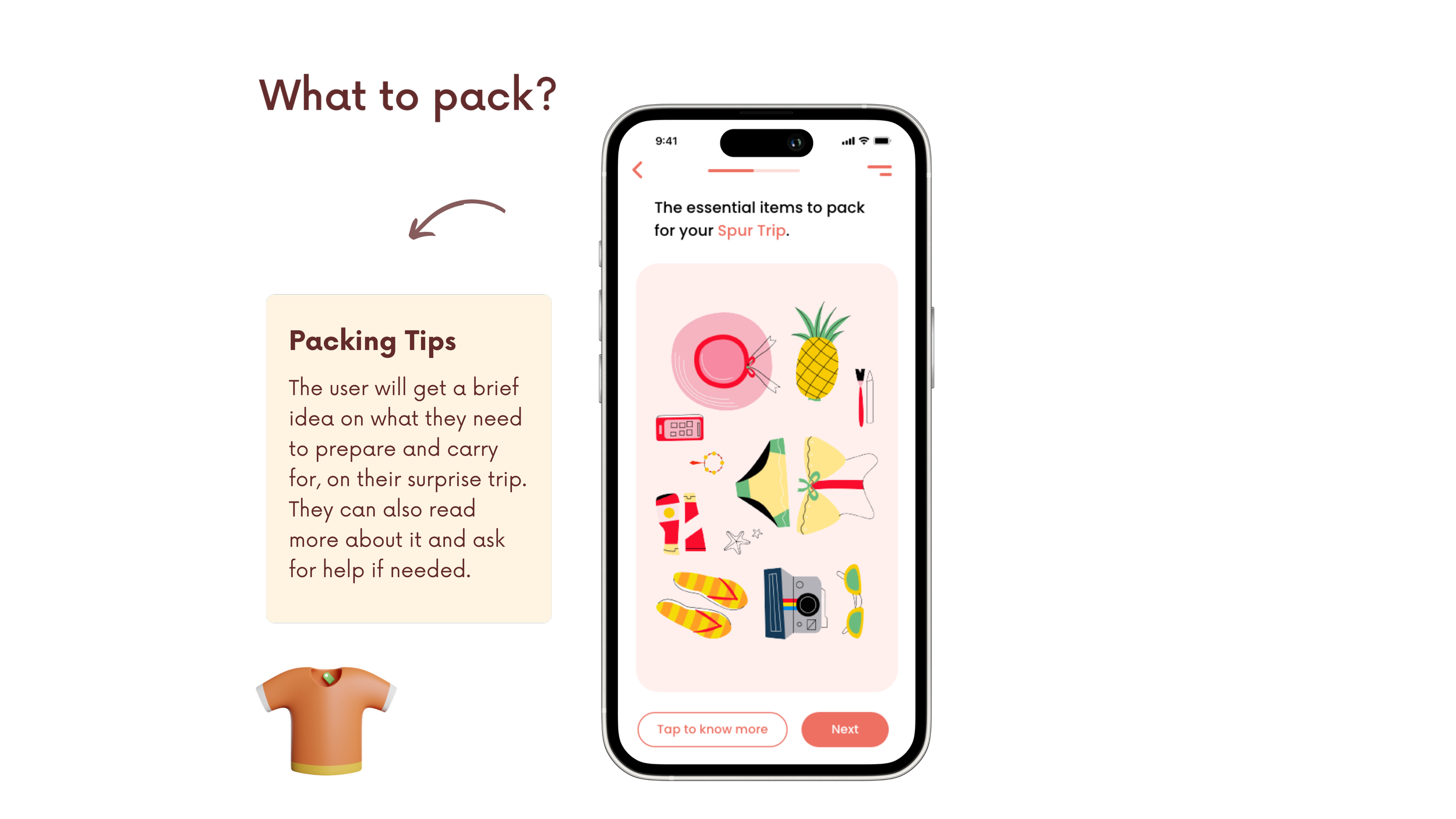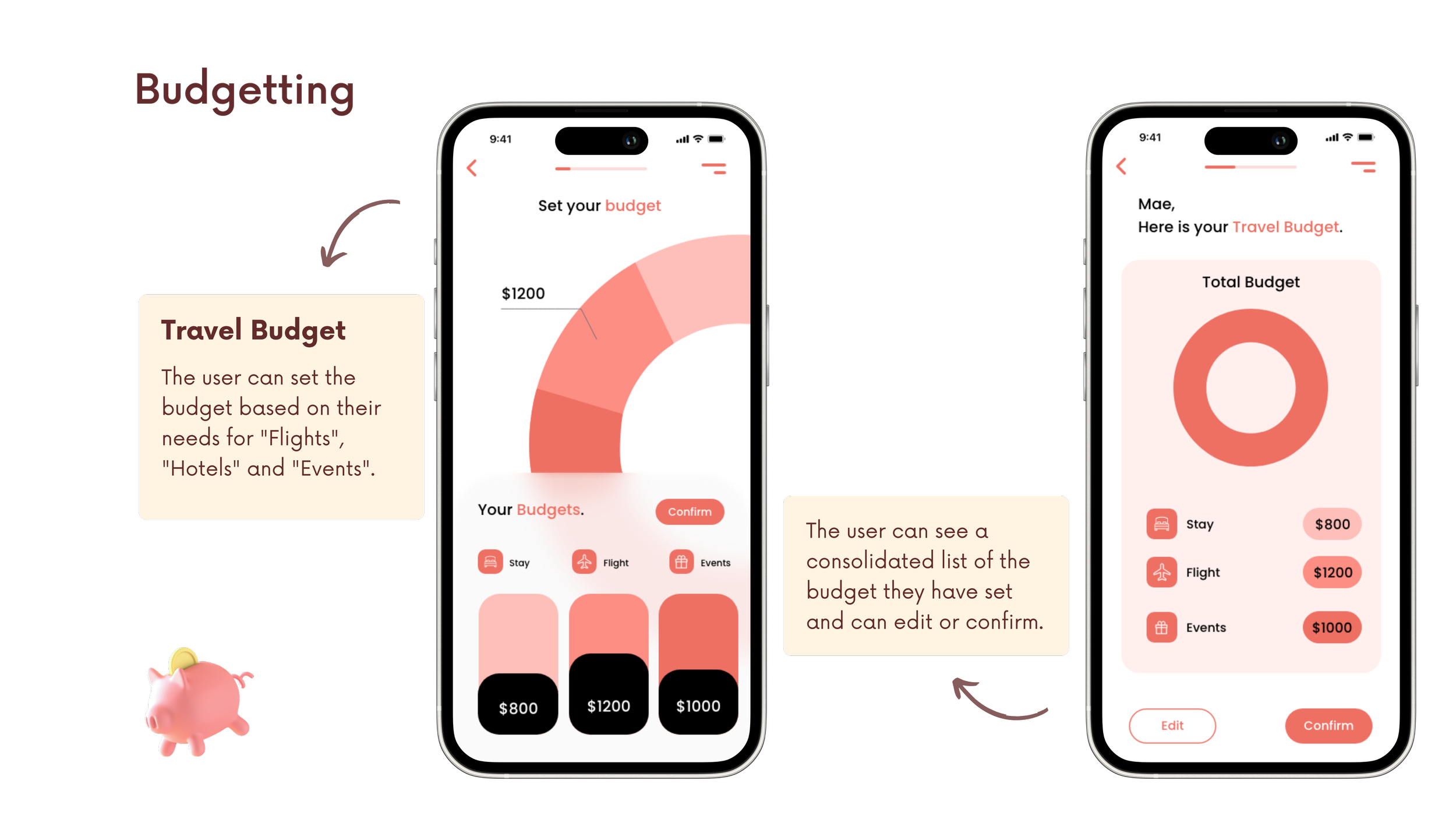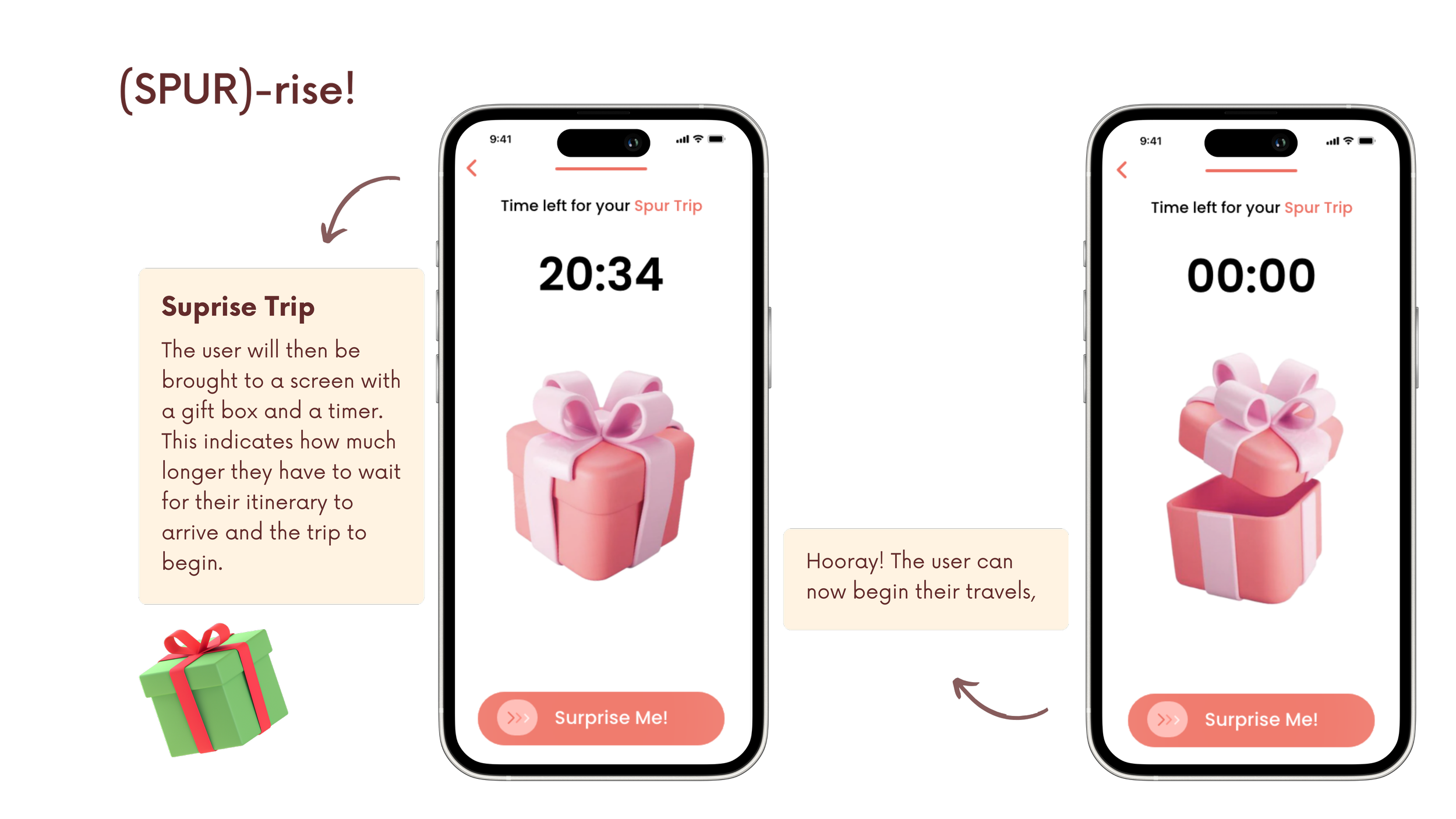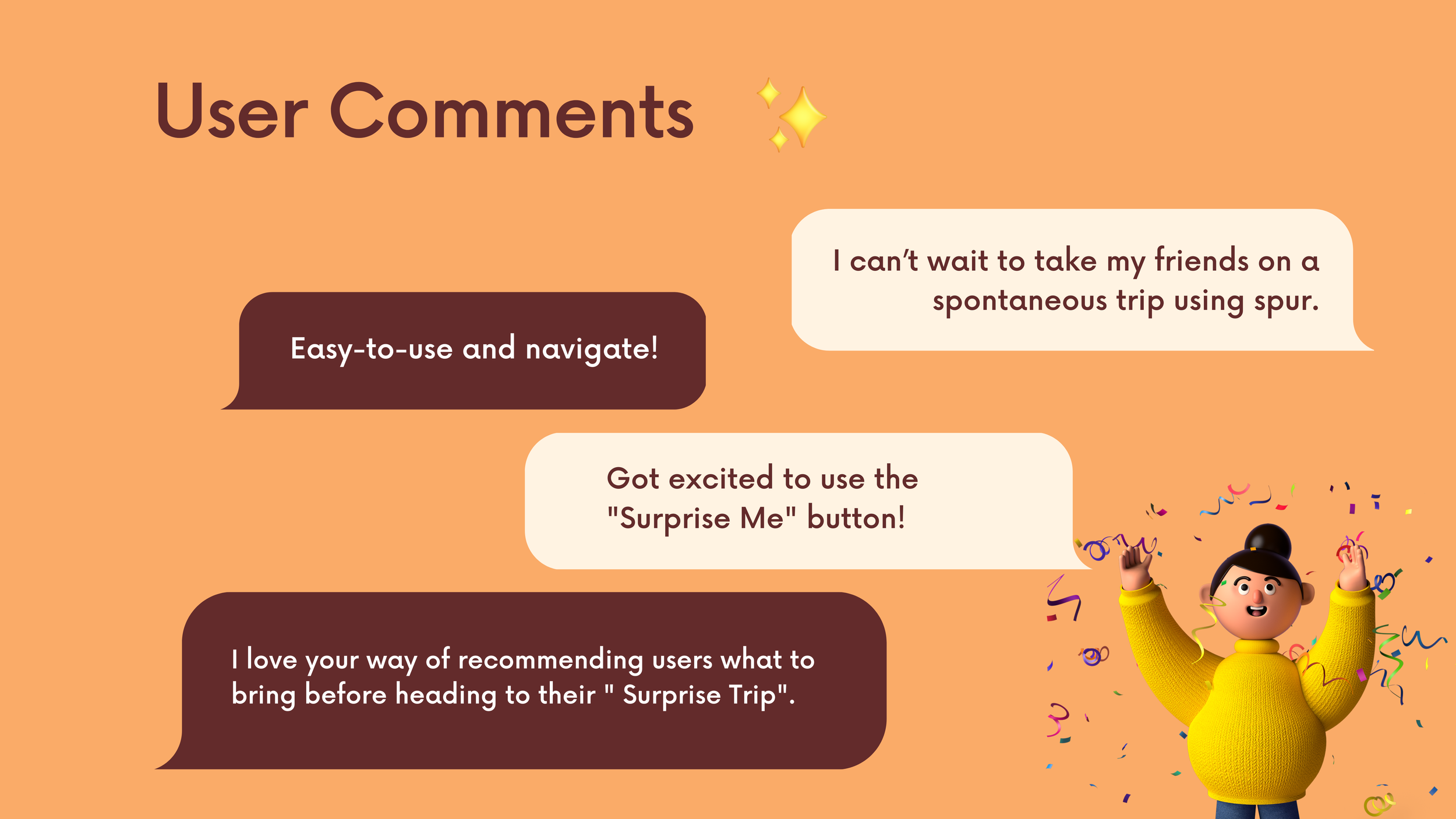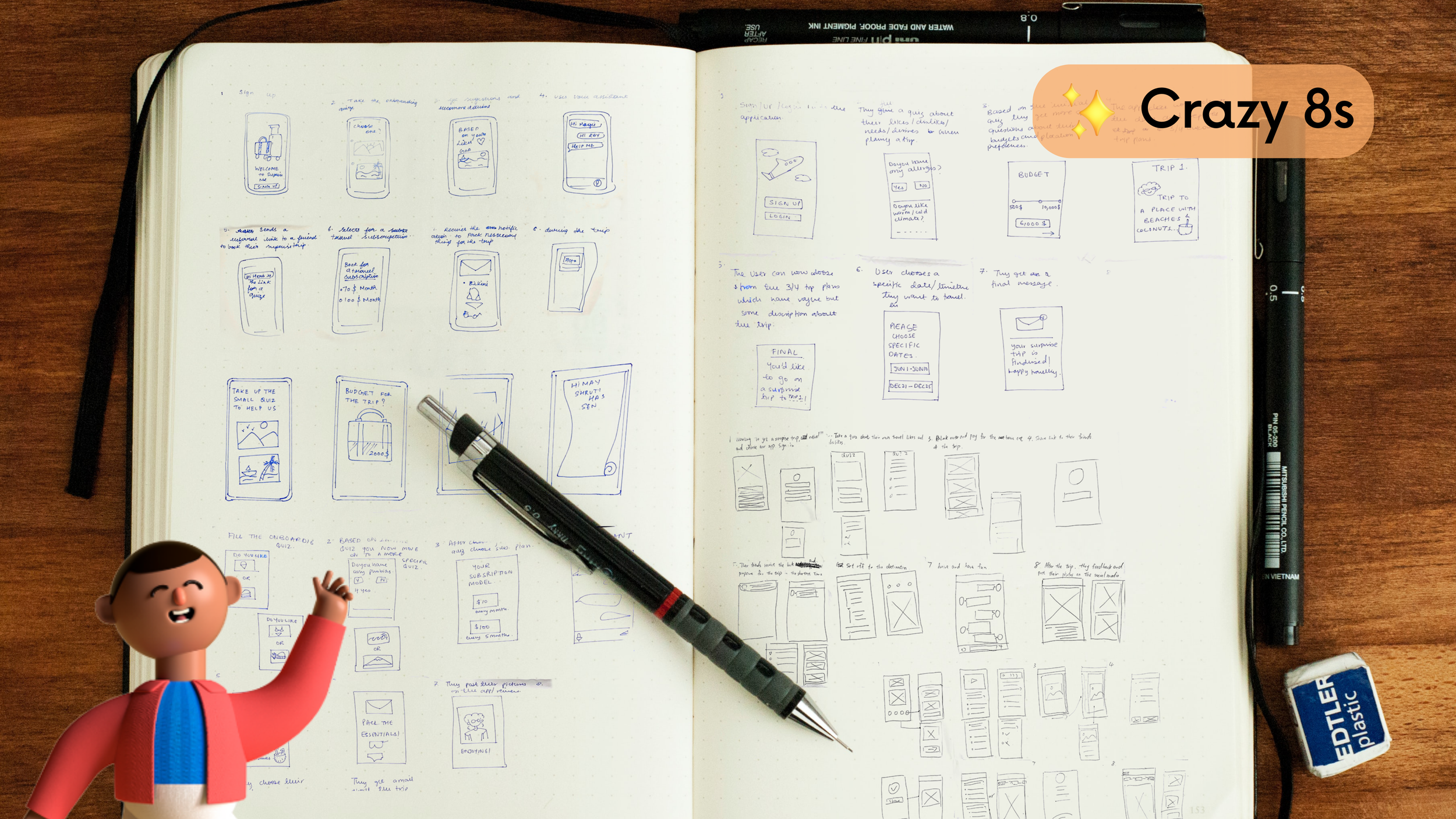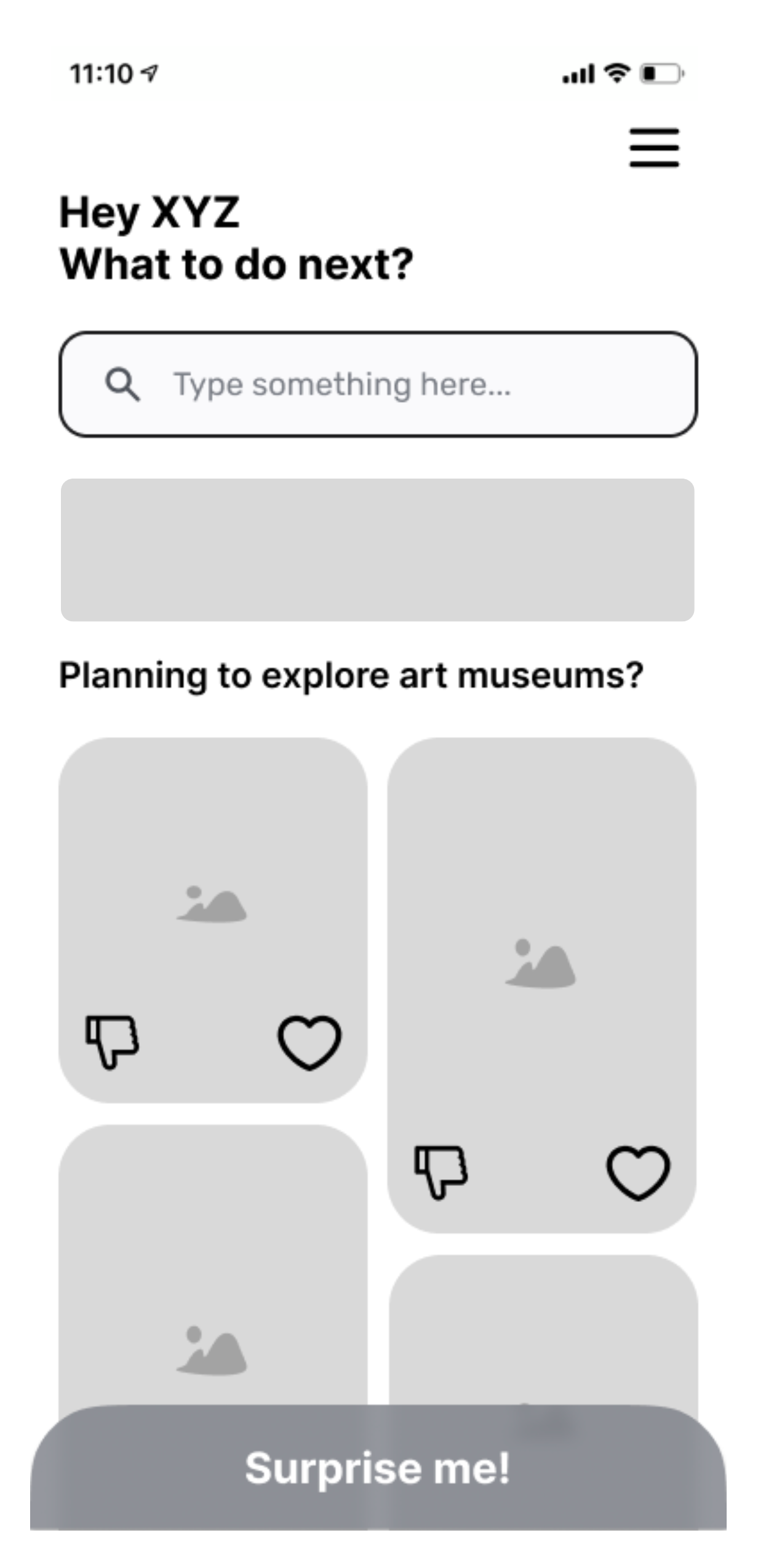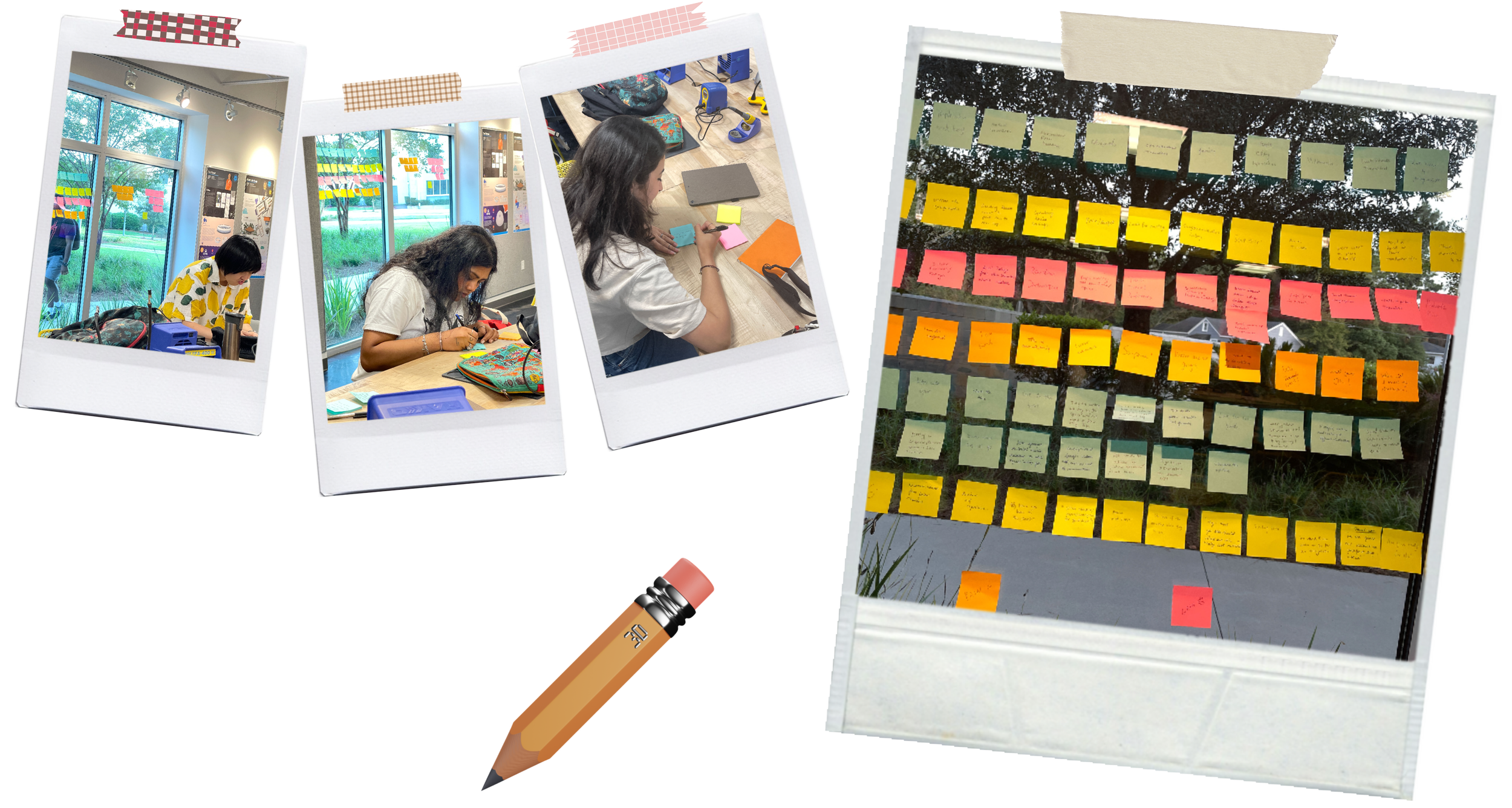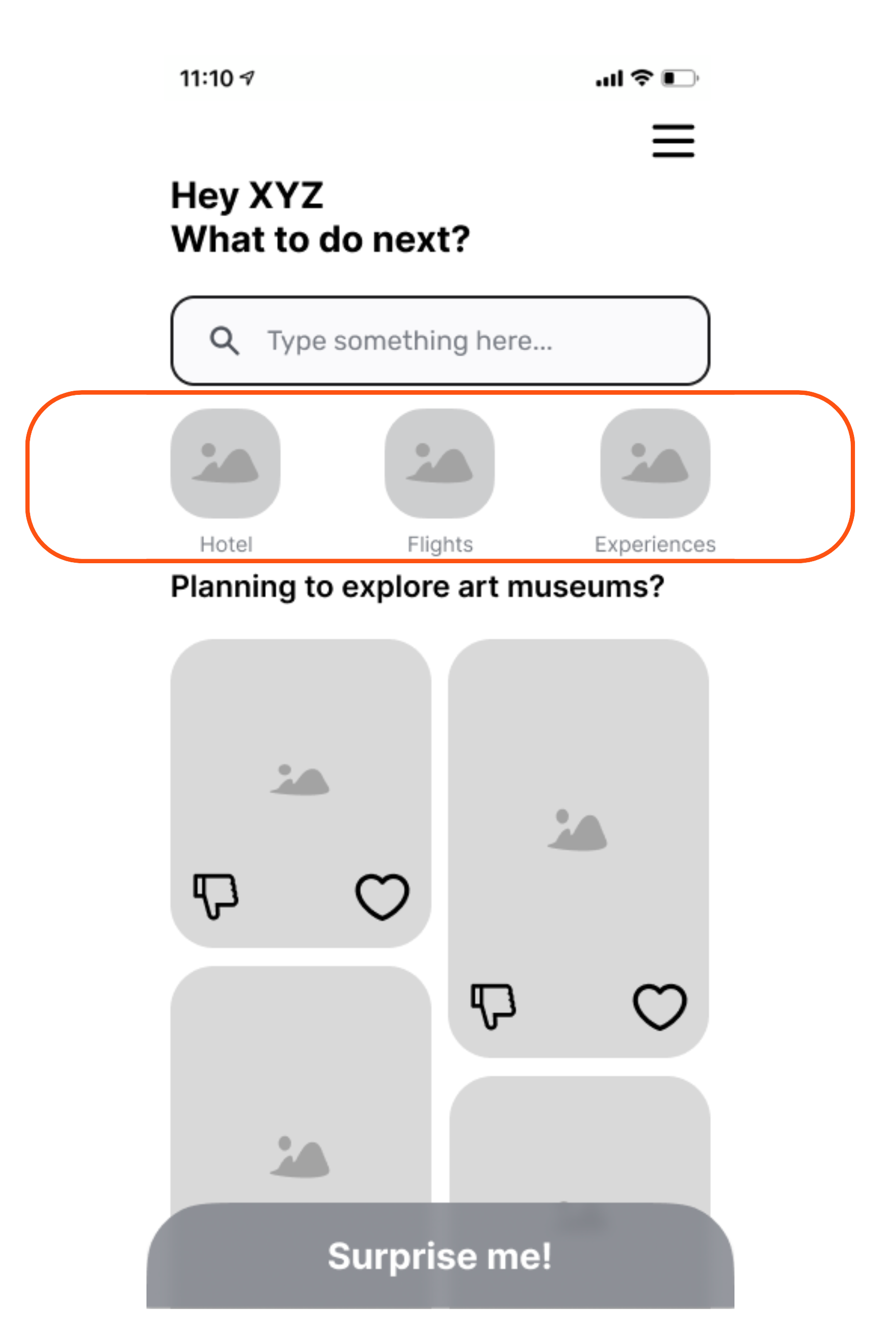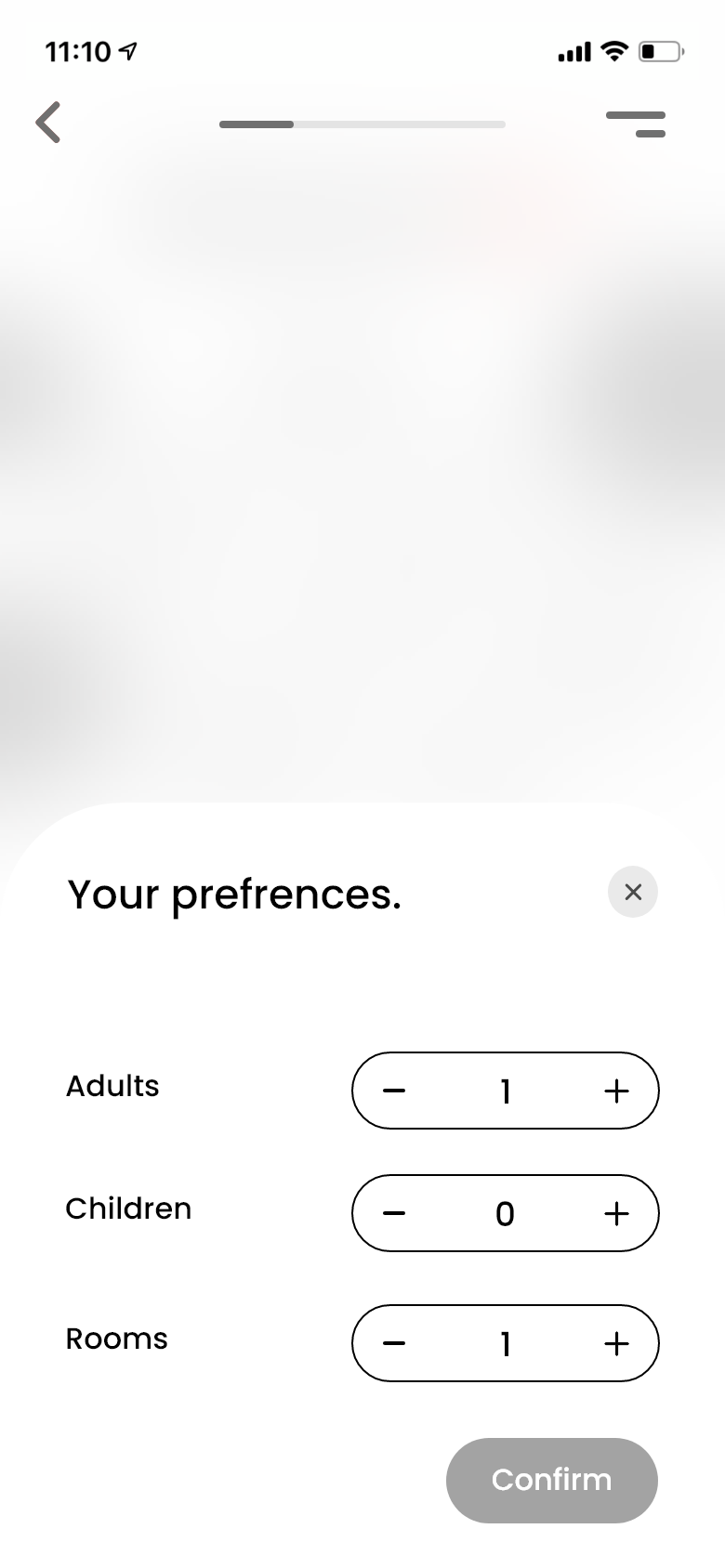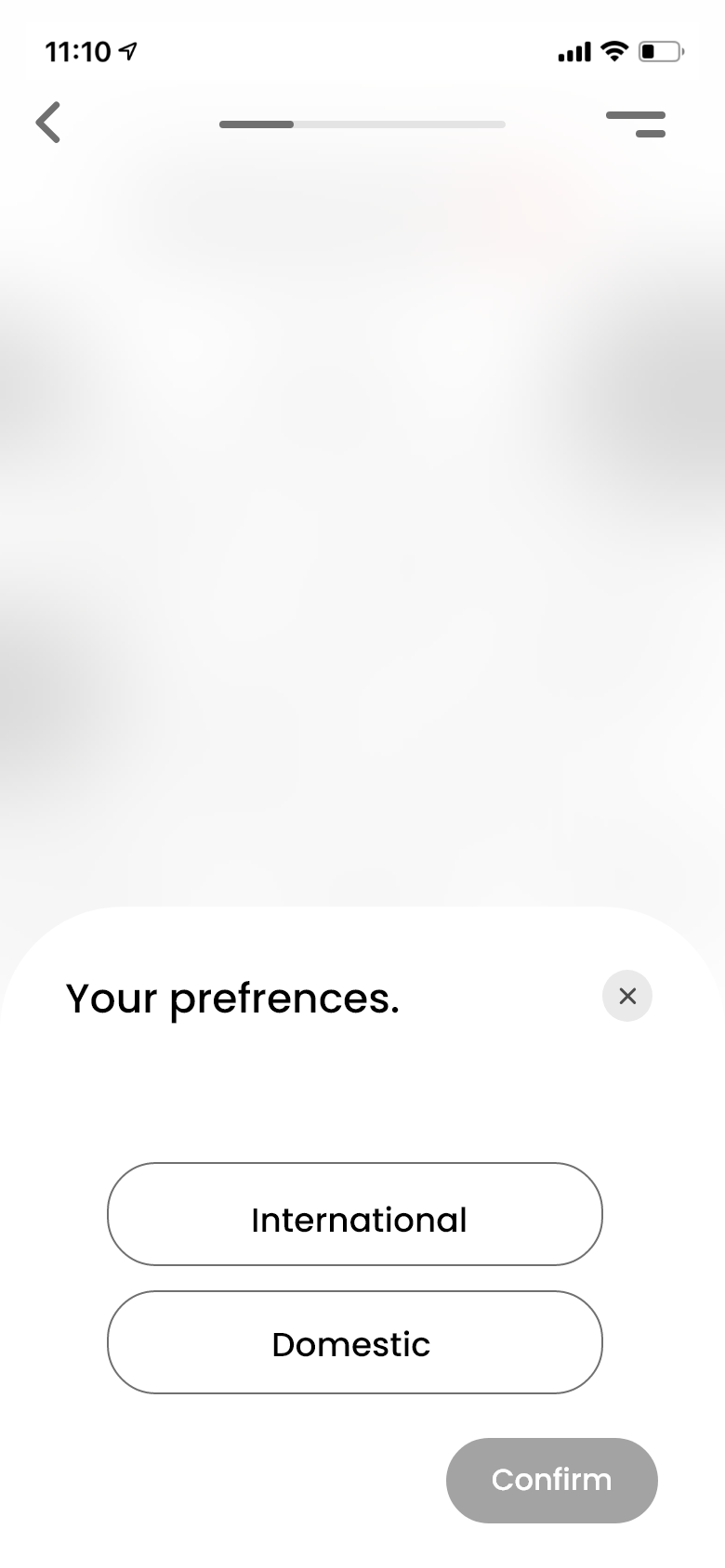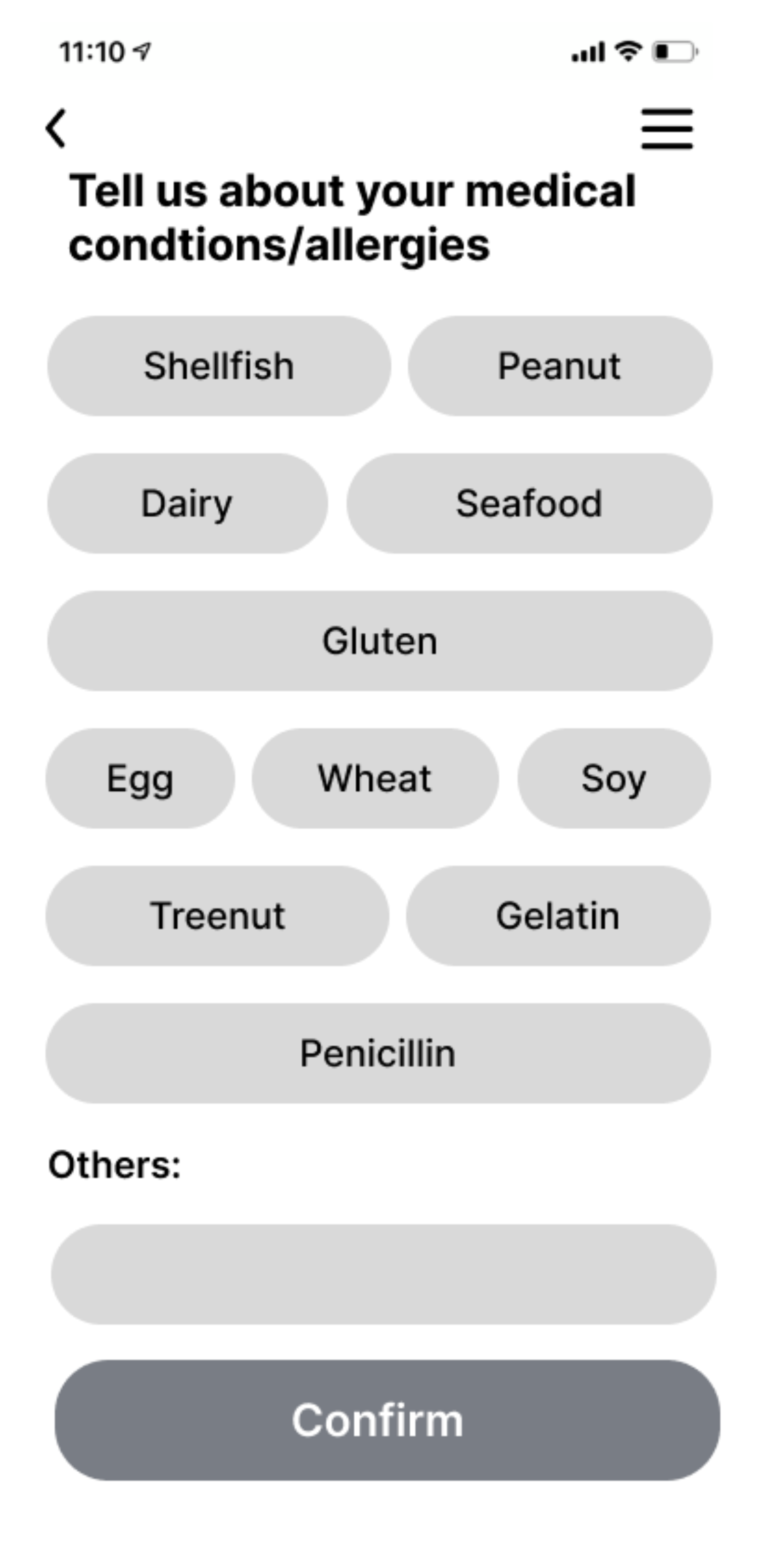02
In response to the time constraints users commonly encounter when preparing travel plans, often leading to unforeseen challenges during trips, this project sets out to transform the landscape of impulsive travel. Our objective is to harness the power of data and cutting-edge technology. By doing so, we aim to empower users, allowing them to embark on spontaneous journeys with confidence and ease, redefining the way people experience and enjoy unplanned travel adventures.
This project received 11 indigo awards in various categories
My Role: UX Design Lead, Project Manager
Team: Shruti , Tanishq & Ting
Duration: 10 weeks
Software: Figma, Adobe Illustrator, Photoshop
Process Book to see the whole process followed during the project
Problem
Due to the shortage of time, users do not have time to prepare their travel plans, expenses, etc. And because of the lack of preparation, there is often unexpected situations on the way.
Trend
Recent research, as highlighted in a Google blog post, reveals an untapped market with substantial growth potential in impulsive travel-related purchases. A survey conducted by Google and Phocuswright indicates that over 60% of American tourists would be open to impromptu vacations spurred by enticing hotel or airline offers
Who are we solving for ?
1. Gen Z Spontaneous Travelers who make impulsive decisions and enjoy last-minute trips.
2. Time-Strapped Professionals who want to maximize their vacation days without extensive planning.
The Solution
Spur is revolutionizing spontaneous travel for Gen Z and busy professionals through its innovative platform. By offering personalized, ready-to-go trip packages, it transforms last-minute travel impulses into reality with just a few taps. Committed to adventure and convenience, Spur employs smart Ai algorithms and curated local insights to deliver personalized authentic, hassle-free travel experiences—or the real 'escapes'—to its users.
Core Features
Personalize
Surprise
Time Saving
Impact
Users saved an average of 70% of the time they would normally spend on trip planning, thanks to the app's personalized curation.
The final product was well-received by users, with 92% of users reporting they found the quiz experience to be "fun" or "very fun".
The quiz seamlessly collected user data and generated personalized trip itineraries, with a 100% completion rate among users.
85% of users expressed interest in using the Spur app for future trip planning and to surprise family/friends.
Secondary Research
The Millennial Way To Travel
Looking through Airbnb’s social media accounts, the overwhelming theme is that of Wanderlust.
Trends in travel styles
60% of travelers would impulse-book a trip. A survey conducted by Google and Phocuswright.
Paid Travel Subscription
Subscription travel platform Hapi Travel Destinations has launched in the U.S.More brands are building paid travel subscriptions.
Tech Trends
Datafication & Artificial Intelligence.
Primary Research
01
According to our study, Gen Z and millennials prefer to go on impromptu vacations rather than preparing ahead and dealing with the problems that go along with it.
04
4 out 5 users want someone else to book a trip for them.
Interview Insights
02
The majority of users like planning, but they are unable to do it in a way that takes their interests into account while remaining within their budget.
05
Some users are hesitant to use the application because they fear that it would propose locations they have already visited.
03
Before booking a trip, users would like to read reviews left by other users who have already taken a trip via the Spur mobile application.
06
Users want to at least take one trip every quarter.
Methods Used : Surveys, interviews, and co-creation workshops involved participants from Gen Z and Millennials demographic.
Low-Fi Screens
I applied the Crazy 8s exercise to quickly draft the steps users might take in navigating the application. I also sketched out basic wireframes during this process.
Iterations & Usability Testing
Findings from 1st testing with 8 user
Home Page Before
Home Page After
User Want
User feedback showed customers wanted control over the surprise factor
Improvement
Added an option to choose domestic or international "Surprise Me" trips.
Findings from 1st testing with 8 user
Travel Preference
User Want
User feedback revealed a need for both curated "Surprise Me" trip planning and the ability to customize certain elements like flights and hotels.
Improvement
Option that allowed users to toggle between these options , empowering them with flexibility.
Travel Preference
User Want
Users wanted to bring friends and family on surprise trips.
Improvement
Added options to specify extra adults, kids, and hotel rooms in the travel preferences, enabling users to easily plan for their whole party.
User Want
Some users were hesitant about Spur planning surprise trips due to health and allergy concerns.
Improvement
Added a quiz screen to collect detailed personal information like health conditions, enabling us to customize the trips to each user's unique needs.
Personal Info Quiz
Prototype
My Role & Takeaways
I played a central role in this project, concept generation, driving user experience, research, and branding efforts.
My contributions included:
Research and Ideation: Conducted user research and ideated the core concept, focusing on data collection through quizzes to personalize surprise trips and simplify travel planning.
User-Centered Design: Co-created the wireframes and conducted user interviews and testing to ensure a seamless and engaging experience.
This project's success was amplified by the power of "thinking outside the box." By stepping beyond conventional approaches, we were able to:
Create an innovative user experience: Our unique data collection concept resulted in a surprising and delightful travel planning experience.
My key takeaways:
The transformative power of creative thinking: Embracing unconventional approaches can lead to groundbreaking solutions.
Achieve outstanding recognition: The project earned my team and me eleven prestigious Indigo awards across various categories.
Building a user-centric foundation: Research and testing are crucial for crafting experiences that resonate with users.
